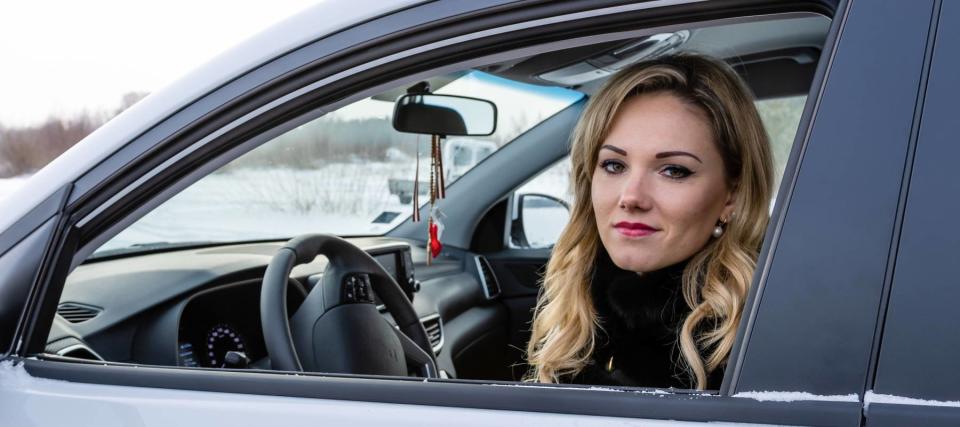New car prices will stay high during auto industry shortage — 7 tips so you don't get gouged

This is a terrible time to shop for a car.
Prices for new and used vehicles are at record highs. Plus, the car you’re looking to buy might not even be available because of unrelenting supply chain backlogs and surging demand as people try to crawl out of the pandemic.
But if you have to replace your 20-year-old clunker, your lease is up, or you don’t want to wait to upgrade your ride, try a few expert strategies on buying or leasing at today’s pandemic prices.
The ideas may help you save some dough — and possibly your sanity.
Why has car buying become so hard? (and expensive)

The average sale price for a new car jumped for the seventh straight month in October to a record $46,036, according to a Kelley Blue Book report. That’s a 12.9% increase from a year earlier.
In this climate, buyers are paying an average of $800 over the manufacturer’s recommended retail price, the report shows. Microchip shortages are slowing production, and some automakers are cutting popular features that need the tiny parts. For example, General Motors is temporarily eliminating heated seats and steering wheels in many vehicles.
The upside-down situation for buyers has many venting their frustrations on social media.
“Shopping for a car right now is the WORST,” tweets Mary Coleman, a breaking news anchor in Arizona.
“Why am I fighting a stranger for a vehicle I’ll be paying $6,000 more for than it’s worth? Curse you, pandemic!”
Used cars not much of a refuge

Used car prices have also revved up. The average list price on a used car was a record $26,971 in October, reports Cox Automotive. That’s 25% above year-ago levels and 38% above pre-pandemic levels.
“It is absolutely a seller's market right now,” says Kayla Reynolds, analyst for Cox Automotive, the parent company of Kelley Blue Book.
Buyers who are braving the market warn the experience is not for the faint of heart.
“Trying to buy a used car, sub-100k miles, sub-$15k is like trying to find a needle in a haystack. Two years ago, a $15k budget was enough to get something from 2016 and less than 60k miles. I wouldn’t wish buying in this market on my worst enemy. It’s miserable,” tweets Lando Calzone.
7 strategies for buying or leasing during the pandemic

The days of stepping onto a car lot and having your pick of make, model and color are over — for the moment, at least. And discounts? You can forget about them. Industry experts say new-car inventory is expected to remain tight through at least the first half of 2022. But consumer car site Edmunds and other auto groups suggest strategies to cope:
Consider a used car. Even though used vehicles are also more expensive these days, you may luck into a good deal — or at least one you can live with — if you expand your search.
Be prepared. Know what you’re walking into so you don’t run screaming when you see the sticker price. And look at what other cars are selling for in your area so you have an idea of what you’ll be paying.
Shop outside your neighborhood. If you live in a city with a higher cost of living or your local dealership has a limited selection of cars, see what’s for sale in a nearby town or county.
Be flexible. Don’t head into the process with one car make or model in mind. Have backup brands in case you don’t find what you want.
Considering leasing or buying out your lease. If you’ve been leasing and your contract is up soon, consider buying out or extending the lease to avoid new car high prices. If you’re looking for a car, leasing may offer cheaper monthly payments. “And since a lease is a much shorter commitment than a purchase, you can explore makes or models that you might not have considered previously," says Edmunds’ Ivan Drury, senior manager of insights.
Think about waiting, if you can. Nearly half of car shoppers are delaying their purchase, according to Kelley Blue Book research. While no one can say exactly when supply and demand will come back into balance, if you can wait to buy a car, it might serve you well in the long run should the market cool off.
Use your trade-in to help offset the high prices. Leverage the rising value of your existing car to trade up to a new one.
Other ways to save this holiday season

Whether or not you’re in the market for a car, you can look for other ways to save money or improve your finances in the months ahead.
Watch for deals and rewards to get the most for your dollar. You might download a free browser add-on that will automatically hunt for better prices and coupons whenever you shop online.
If you haven’t shopped for car insurance lately, you might be paying too much. Do some comparison shopping to lower your auto insurance premiums. Consider doing the same to find a cheaper rate on homeowners insurance.
If you've been relying heavily on credit cards during the pandemic, you might want to roll your balances into a lower-interest debt consolidation loan to help pay off that debt more quickly and affordably.
Even if you don’t have a ton of cash to spare, you can try to squeeze some income out of the stock market. A popular app lets you invest just your "spare change" from everyday purchases.
This article provides information only and should not be construed as advice. It is provided without warranty of any kind.

 Yahoo Finance
Yahoo Finance 